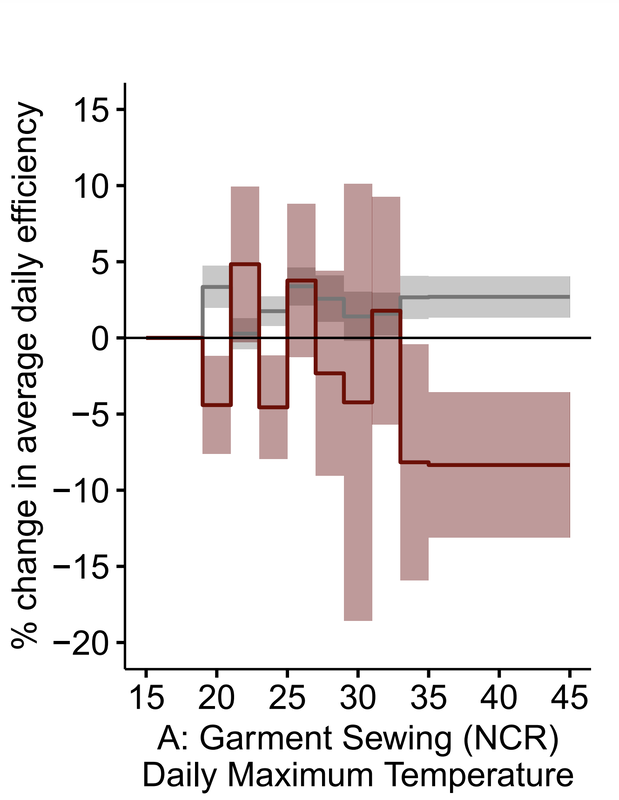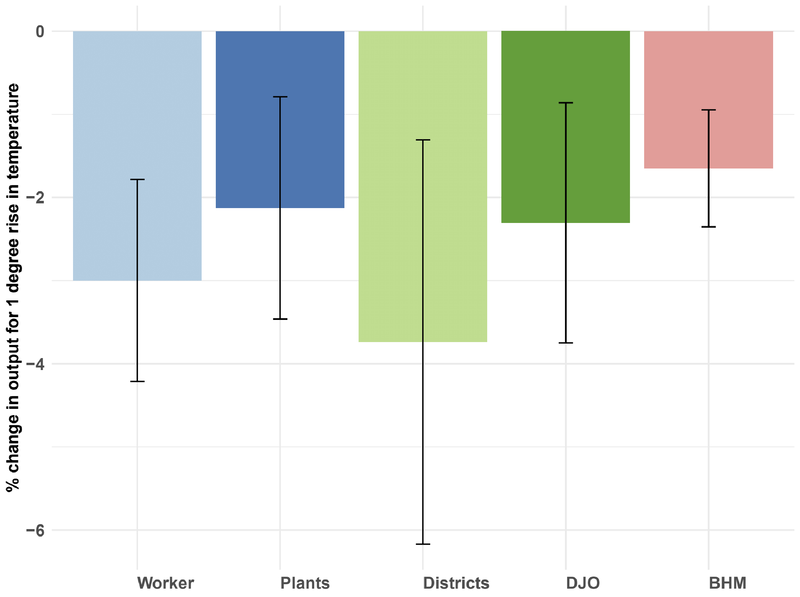The Impact of Temperature on Productivity and Labor Supply
(with Rohini Somanathan, E Somanathan, and Meenu Tewari)
(with Rohini Somanathan, E Somanathan, and Meenu Tewari)
Hotter years are associated with lower economic output in developing countries. We show that the effect of temperature on labor is an important part of the explanation. Using microdata from selected firms in India, we estimate reduced worker productivity and increased absenteeism on hot days. Climate control significantly mitigates productivity losses. In a national panel of Indian factories, annual plant output falls by about 2% per degree Celsius. This response appears to be driven by a reduction in the output elasticity of labor. Our estimates are large enough to explain previously observed output losses in cross-country panels
Paper in Journal of Political Economy: The Impact of Temperature on Productivity and Labor Supply: Evidence from Indian Manufacturing
Becker-Friedman Institute Working Paper Version (older, ungated): The Impact of Temperature on Productivity and Labor Supply: Evidence from Indian Manufacturing
Related Op-eds and other writing:
High temperatures, low productivity and its effect on India’s growth. Hindustan Times. June 2021.
Recent Press Coverage: Compilation1, Compilation2, Politico, CBS News
Becker-Friedman Institute Working Paper Version (older, ungated): The Impact of Temperature on Productivity and Labor Supply: Evidence from Indian Manufacturing
Related Op-eds and other writing:
High temperatures, low productivity and its effect on India’s growth. Hindustan Times. June 2021.
Recent Press Coverage: Compilation1, Compilation2, Politico, CBS News
Transport and Carbon Emissions in the United States: The Long View
(with Lee Schipper and Calanit Saenger)
(with Lee Schipper and Calanit Saenger)
This analysis traces U.S. transport CO2 emissions in combustion by mode for 1960–2008. Changes in emissions are divided into components related to overall population and economic growth, transport mode shift, changes in the ratio of fuel used to passenger or tonne-km of activity, and changes in the CO2 content of fuels. Where data permit we show how changes in vehicle utilization affected CO2 emissions. We comment on factors causing the changes in components of emissions. A Log-Mean Divisia Index and Laspeyres decompositions of the 1960–2008 changes are calculated. From this decomposition we speculate to what extent the factors associated with the increases in CO2 emissions since 1960 would be important in the future, and what other factors could reduce emissions. This thorough decomposition is imperative for the crafting of transport policy that aims to address climate change.

